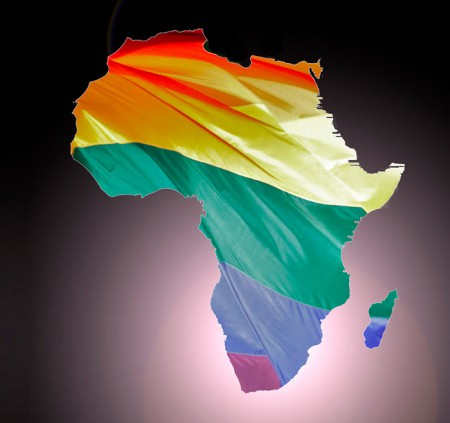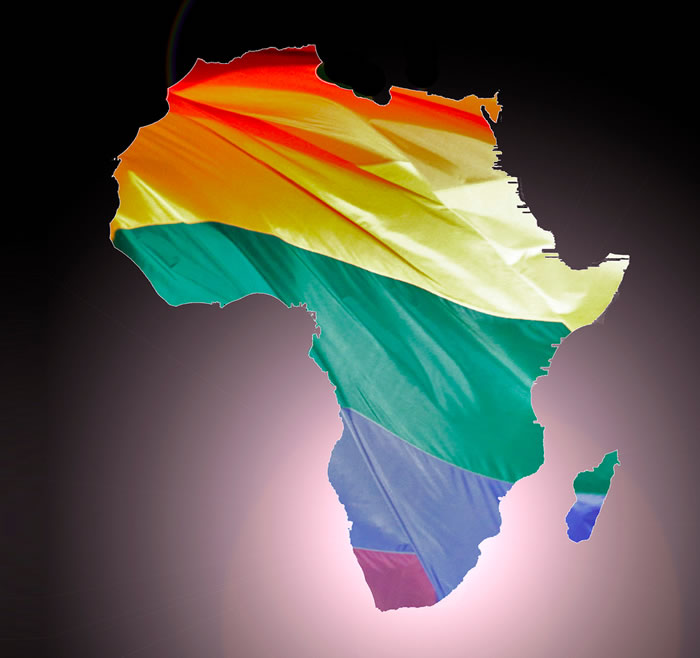A country with a fiercely anti-gay leader has lost a bid to host the General Conference of the United Methodist Church for 2024…what does that mean?

Holy Conferencing…but where?
There was an interesting story coming out of General Conference Commission meetings, held last week in Portland, Oregon. Other than there’s a new process on discussion of human sexuality. Other than all international delegates will get tablets and an app for translations (super helpful!).
Rather, the big news is that General Conference 2024 and 2028 will be held outside of the United States for the first time. That’s really exciting and it will do the church good to affirm that we are a global church, with global concerns lived out in regional ways.
However, left out of the UMCOM report is the discussion of how this decision came to be.
Like the Olympics jockeying to host the Games, Bishops from both countries came to offer their invitation to host the Conference. But the topic that came up in the discussion was probably unexpected. Heather Hahn, a UMNS reporter present during the conversations, reports on why Zimbabwe didn’t get first bill:
Audun Westad of Norway noted that the human-rights watchdog group Amnesty International has listed Zimbabwe among the most dangerous nations for LGBTQ individuals.
“I know you can’t guarantee our safety here in the U.S., but being in the top 10 list of dangerous places is a completely different story,” he said. “I feel we have to have some kind of official statement from the government in Zimbabwe regarding this because it is a huge problem.”
Initially, the commission considered invitations for General Conference to convene first in Zimbabwe in 2024 and then the Philippines in 2028. Ultimately, the commission reversed the years in hopes of an improving situation in the southeastern African nation.
We can call this the “church version” of the resounding outrage by the business community against the USA state of Indiana’s anti-gay laws masquerading as “religious liberty.” After folks began boycotting, pulling out their conferences, and other economic actions, Indiana kinda clarified that law.
For the UMC, by deferring an infusion of millions of dollars of travel, lodging, and tourism dollars from a fiercely anti-gay country, the hope is that more time (President Mugabe is 91) and awareness will make the country more affirming at least to the point where our LGBT delegates won’t be arrested. It’s a very low bar, but the deferral speaks volumes in ecclesial circles. However, we are planning on going to Zimbabwe in 2028. And Zimbabwe is the backup location for 2024 in case Manila, in the Philippines, cannot accommodate the Conference in time.
While the country’s sentiment is surely out of step with the good people called Methodists in Zimbabwe, it’s commendable that the Commission on General Conference was receptive to concerns about the basic safety of their LGBT delegates and the host country’s enforcement of anti-gay policies.
Not That Far Apart…
The reality is that Zimbabwe’s policies are only different from the United Methodist Church in one area:
In Zimbabwe, sexual acts between people of the same sex are criminal offenses. The country’s President Robert Mugabe, who is 91, has used violent rhetoric in speaking out against homosexuality, and the country’s gay population has gone largely underground.
The United Methodist Church teaches that homosexuality “is incompatible with Christian teaching.” It bans clergy from performing and churches from hosting ceremonies that celebrate same-gender unions. Still, the denomination also teaches that all people are of sacred worth and urges governments not to discriminate because of sexual orientation.
In the UMC, intimate acts between partners of the same sex–when one is a clergyperson–are ecclesial offenses. Our own delegates to General Conference have used violent rhetoric against LGBT Methodists in bathrooms, and compared them to people committing beastiality or pedophilia on floor speeches. The sentiment against LGBT persons in the United Methodist Church is, at times, indistinguishable from Zimbabwe’s state policies.
While the UMC urges governments not to discriminate, it has no problem setting discriminatory obstacles in front of LGBT persons seeking ordination or marriage that straight people do not have. And some individual churches have no problem with staff running their gay children out of the church, or firing employees for being in a same-gender relationship.
Both Zimbabwe and the United Methodist Church have much to do to provide a truly safe General Conference 2028 for LGBT delegates and observers. It’s on all of us, not just one country, to be a different church in 2028.
Waiting it out…
My hope is that this deferral of Zimbabwe’s hosting of General Conference wakes us up to the fact that the Church is not too far apart from Zimbabwe or many countries (Russia, Uganda, etc) due to its polity inequality towards LGBT persons.
But just as the General Commission on General Conference is hoping time will solve the problem, the UMC knows that time is ticking away to a tipping point and that just “waiting it out” is not an answer for people for whom equality in consideration for ordination and marriage has been long denied.
May we move forward boldly so that our church is a headlight shining on a more just church and society, rather than a tail light on the wrong side of history.
Thoughts?


I suspect that moving these two GCs outside of the US is an attempt to quell the protests that accompany each. I think they are merely hoping that only delegates will show up, and the rest of us can’t afford the trip.
This is not about showing us as a “global church.” This about isolating the General Conference and its delegates to the extent possible.
Yes, I’m on a rant. Even if Mugabe dies tomorrow, the violence and hate against LGBT people in Zimbabwe is deeply rooted and institutionalized. 12 years from now, Zimbabwe will hardly have turned 180 degrees on this…it won’t have turned 45 degrees.
And as for your defense of the Methodist in Zimbabwe, I live in Tampa, and attended the 2012 GC here, and heard some of the comments from a delegate from Zimbabwe…the good people called Methodists in Zimbabwe are no more welcoming themselves. Sorry, but that’s just my direct experience.
I fear for our LGBTQ delegates with GC held in Zimbabwe. I agree with the previous commenter than having GC held there will prohibit, via cost & distance & safety concerns, those of us who would attend, working for full inclusion, provided it hasn’t been attained in the UMC by that point.If full inclusion HAS been attained, then I would imagine we could have even more LGBTQ delegates, some of whom might attend accompanied by spouse/partner, making them even MORE at risk by Zimbabwe’s current standards.
While I love that the GC will be held outside the US, I wish a safer country’s Bishop had stepped up to the plate. All in all, I think Zimbabwe is a bad idea. I’m grateful Audun Westad spoke up about it. I ashamed the concerns Audun addressed weren’t taken more seriously. And how does the US State Department rate Zimbabwe for any US citizen’s safety?
I must disagree that the move outside the U.S. is an attempt to silence voices with distance. I was present for the commissions heartfelt discussion about safety and the value of meeting in central conferences.
Lobbists on all sides will have more difficulty attending, but that’s been true for those from outside the U.S. for years. It is something that can be planned for.
The “safe” thing might be to go to a nice location in Europe, where there are few Methodists. Going to Zimbabwe and the Phillipines is a bold statement. That shows support for where the church is growing. As long as it can be safe for all.
Yes, Gregg, it is certainly more of a challenge for Central Conferences delegates to attend a US-based GC…but there the majority of delegates still come from the US…so you do you challenge?
But nothing changes the danger of holding the GC in a country like Zimbabwe? Not only for LGBT Methodists, but the country is not the most stable country in the region either, and it is likely Mugaba will be dead by then…who will be running the country in 2024.
This is just very poor decision and an unnecessary risk.
Good article Jeremy. But an EPIC link bait headline. I’m a little concerned that most people won’t read your words before sharing your headline – have seen that here already. Will encourage people to click to the article before commenting.
I was in attendance at the General Commission meeting last week in Portland, representing Love Prevails, when the matter of holding General Conference in Zimbabwe was discussed. After it felt like the discussion about this venue had run it’s course, I requested permission to speak. After a vote was taken to allow me to speak, I raised concerns that the laws of Zimbabwe are particularly violent in relation to LGBTQ folks and asked that due consideration of LGBTQ delegates and visitors be given serious consideration. Whether this had simply not crossed Commission’s members minds, or at the very least had not crossed their lips, I was glad that my concern was well received and that a fruitful discussion ensued. I am so grateful that I was in attendance at the meeting and could make this kind of tangible contribution to the wellbeing of LGBTQ people (#showup). Rarely does my advocacy work yield such immediate and positive results. I extend my heartfelt thanks to the Commission for taking this important step.
And yes, of course, parallels can be drawn between the UMC’s anti-Queer policies and the laws of Zimbabwe. In fact, I believe our policies give fuel and credence to such barbaric laws. And yes, it is disingenuous to hold Zimbabwe morally accountable for it’s laws all the while continuing to support and participate in a church which holds similar hatred at its very heart. This is certainly a speck and log moment. Hopefully, the Commission’s actions will shine a light on this reality and will cause people (I am talking to you, progressive UMs) to confront our church’s policies with renewed commitment and vigor (#disclose #divest, #disrupt).
Thank you, Amy. For your presence & witness at the meeting and for your words here. You do so much for us.
I was appalled to read Amy’s comment that she had to mention the safety issue in such a virulently anti-LGBT country. I find it hard to fathom how the commission could not understand that the mere consideration of both the Philippines and Zimbabwe as GC sites would be deeply troubling to those who are LGBT. It is such a slap in the face. How would women in the church feel if a site considered for GC was in a country where women are degraded? Thankfully the church has come far enough to recognize what a disaster choosing a misogynistic site would be. When (if ever) will the church understand the ramifications for the type of decision it is making now? I say that the consideration of both the Philippines and Zimbabwe should be a sign to all Reconciling churches, for all LGBT supporters, and for all those who are LGBT to back out the back door of the UMC immediately.